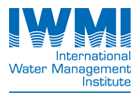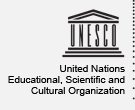Presentations 2016
Pavelic, Paul
Presentation Title
Options for viable small-scale groundwater irrigation systems in the least-developed, water-rich case of Lao PDR
Institution
International Water Management Institute
Video
Video Not Available
Presentation
Profile Picture

Abstract
In a poorly developed, water-rich country such as Lao PDR, most attention has historically been given to surface water development issues with limited consideration to groundwater. However, even with such relative abundance, spatial or temporal shortfalls and occasional droughts are faced, and groundwater is being increasingly relied upon to achieve broader socioeconomic development goals. Whilst groundwater development for domestic supplies has progressed ‘below the radar’ with mixed success under rudimentary governance arrangements, the consequence has been little knowledge and capacity to manage the groundwater resources and virtually no groundwater use for irrigation. All this is gradually changing with groundwater beginning to be included in water policies and development plans. A research project which began in 2012 (http://gw-laos.iwmi.org/) seeks to explore the role of expanding groundwater use for agriculture to address food security issues and enable diversification of cropping beyond paddy. Considering this challenge from an integrated, multidisciplinary perspective, the project is working towards creating:• improved understanding of the hydrogeological systems and water balance across regions and scales;• clarity on the way groundwater is perceived and used under different contexts; • clearer definition of the socio-economic costs and benefits of groundwater irrigation through establishment of pilot trials; • tools that assess how to achieve sustainable groundwater development and avoid negative environmental impacts; and • strengthened technical and institutional capacity within government, universities and other important stakeholders.This paper will focus on presenting the key findings from a techno-economic and institutional evaluation of irrigation pilot trials that have been setup on the Vientiane Plains; one of the major ‘food bowls’ of the country. Dry season small-scale groundwater irrigation of cash crops using shallow wells that are managed by individual farmers as well as deep tube wells that are managed by user groups are being evaluated and compared. These performance evaluations consider the profitability of various crop types, source of energy, irrigation methods and water use efficiency, labor availability, land tenure and other factors.On the whole, they reveal that there are viable alternatives to the current portfolio of publicaly supported, medium or large scale surface water irrigation schemes which provides viable livelihood options for smallholders residing beyond the command areas. This completely neglected area of government policy would include greater emphasis to decentralised systems of irrigation based on the use of tube wells, dug wells (or even small on-farm ponds), managed by individual farmers or small collectives who have greater control over water delivery.
|












